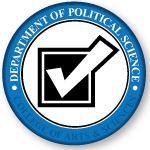Document Type
Article
Publication Date
Spring 2021
Publication Title
Georgetown Journal of International Affairs
Volume
22
Issue
1
First Page
112
Last Page
118
DOI
https://dx.doi.org/10.1353/gia.2021.0001
Abstract
As climate change accelerates, geoengineering has emerged as a potential last-resort strategy for mitigating global warming. However, the absence of a comprehensive governance framework raises critical political, ethical, and ecological concerns. This article compares geoengineering governance to two existing global regimes: nuclear technology, which is tightly controlled due to catastrophic risks, and the internet, which is loosely regulated to maximize accessibility. Through analysis of utility, barriers to entry, and regulatory structures, the author argues that no single model is sufficient for geoengineering governance. Instead, a hybrid framework is required—one that combines strict oversight for high-risk, globally impactful technologies with flexible, decentralized management for lower-risk methods. Such an approach would balance innovation and precaution, ensuring that geoengineering, if ever deployed, contributes to climate security without amplifying environmental or geopolitical instability
Recommended Citation
Chalecki, Elizabeth L. 2021. “Should We Govern Geoengineering Like Nuclear Weapons or the Internet?” Georgetown Journal of International Affairs Vol. 22, No. 1, pp. 112-118.


Comments
This was deposited with permission from the publisher. Any reuse or permissions must be obtained from the copyright holder directly.
Note: PDF passed accessibility checker before upload.